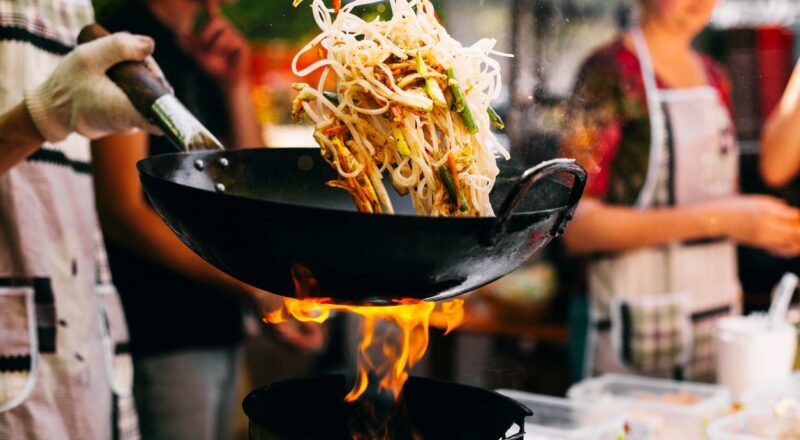The beloved wok, a staple in kitchens around the world, is celebrated for its versatility and ability to whip up delicious meals in minutes. Yet, encountering a peeling wok can be a source of frustration and confusion, especially for those who cherish their cookware. So, why is my wok peeling? In this article, we’ll delve into the possible causes and provide practical solutions to bring your wok back to life.

Understanding the Anatomy of a Wok
Before we identify why woks might peel, its crucial to understand their construction. Primarily made of carbon steel or cast iron, these materials require proper upkeep to maintain their non-stick properties and longevity. Enamel-coated woks are less common but offer a different set of benefits and challenges.
Possible Causes of Wok Peeling
Poor Seasoning Process
A round of poor seasoning often traces back to a peeling wok. When not seasoned adequately, the protective layer of oil that prevents food from stickingand in turn, prevents peelingis likely compromised.
Using Abrasive Cleaning Products
Cleaning your wok with abrasive pads or harsh chemicals can strip away this essential protective layer, leading to damage and potential peeling. Using gentle methods is key to woks maintenance.
High Heat Cooking
While woks are designed to withstand high heat, exceedingly high temperatures can damage low-quality coatings or poorly prepared surfaces. Always heat your wok gradually to avoid sudden thermal shock.
Improper Storage
Storing your wok without appropriate care, such as not drying it thoroughly after washing, can lead to rust formation. Rust is a common reason for peeling in woks, as it undermines the metal’s integrity.
Fixing a Peeling Wok
Re-seasoning Your Wok
To restore your wok to prime condition, consider re-seasoning. Begin by scrubbing it gently to remove residual flakes, and then employ a seasoned oil layer following expert advice from sources like Inquiring Chef.
Choosing the Right Cleaner
Select non-abrasive materials for cleaning your wok. Sponges or soft cloths paired with mild detergents will protect the wok’s surface during everyday maintenance.
Preventative Measures to Keep Your Wok in Top Condition
Routine Maintenance Practices
Regular maintenance not only prevents peeling but enhances performance. Ensure you season your wok after each cleaning session, eschewing soap, which can strip oils.
Quality Purchase and Usage
Investing in a high-quality wok ensures a better cooking experience and a longer lifespan. Understanding the varied materials and coatings available aids in making an informed purchase decision.
Conclusion
A peeling wok need not spell the end of your kitchen staple. Careful attention to maintenance habits and understanding the nuances of wok care can extend its life and keep it performing optimally.

FAQs About Wok Care
How often should I season my wok?
Re-season your wok after every wash or when food begins to stick regularly.
Is it safe to continue using a peeling wok?
While using a peeling wok poses no immediate danger, restoration is recommended to maintain optimal cooking conditions.
Can a non-stick coated wok be repaired?
A non-stick coated wok cannot typically be repaired and may require replacement once the coating starts to peel.
As an Amazon Associate, I earn from qualifying purchases.

